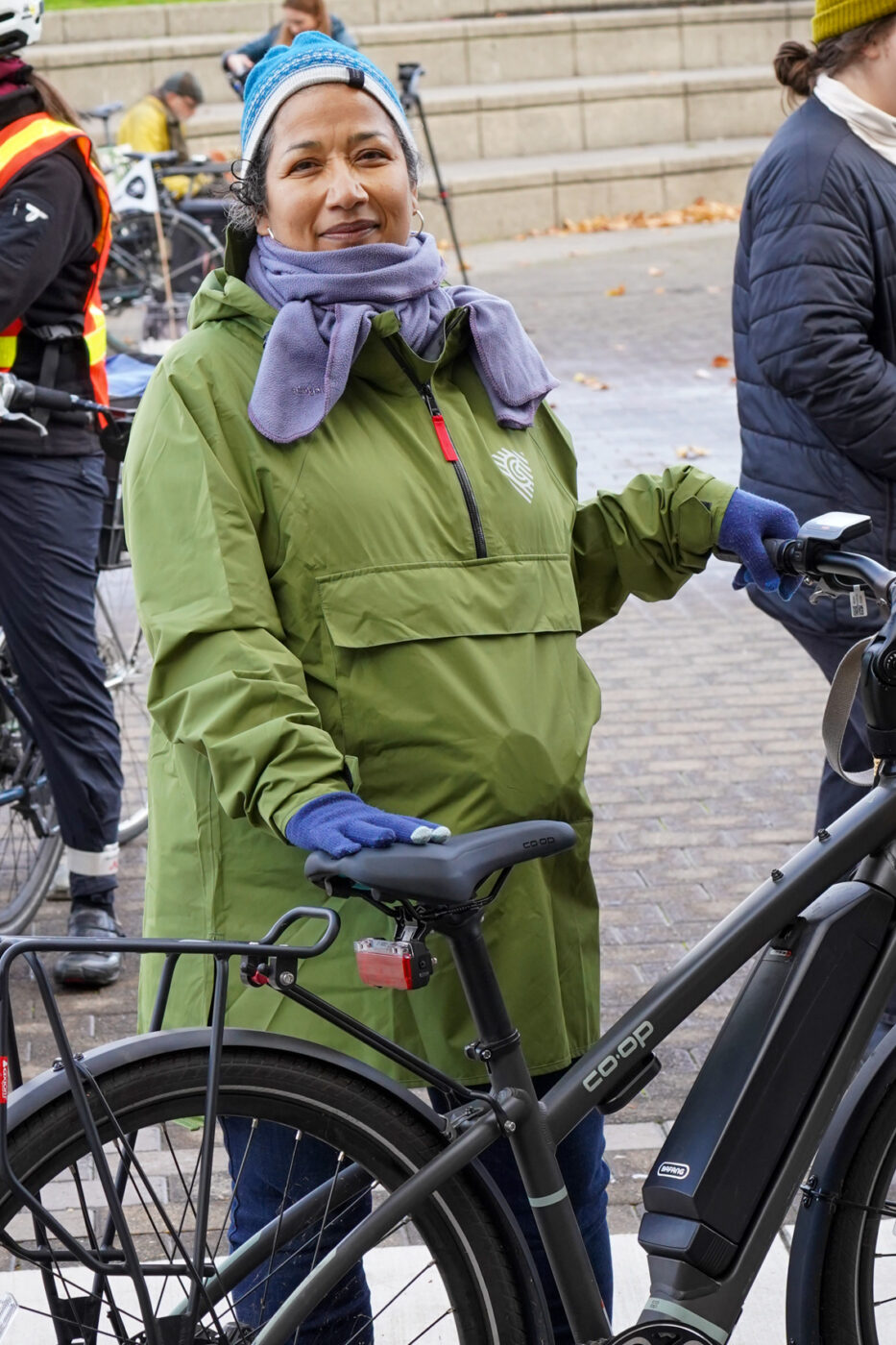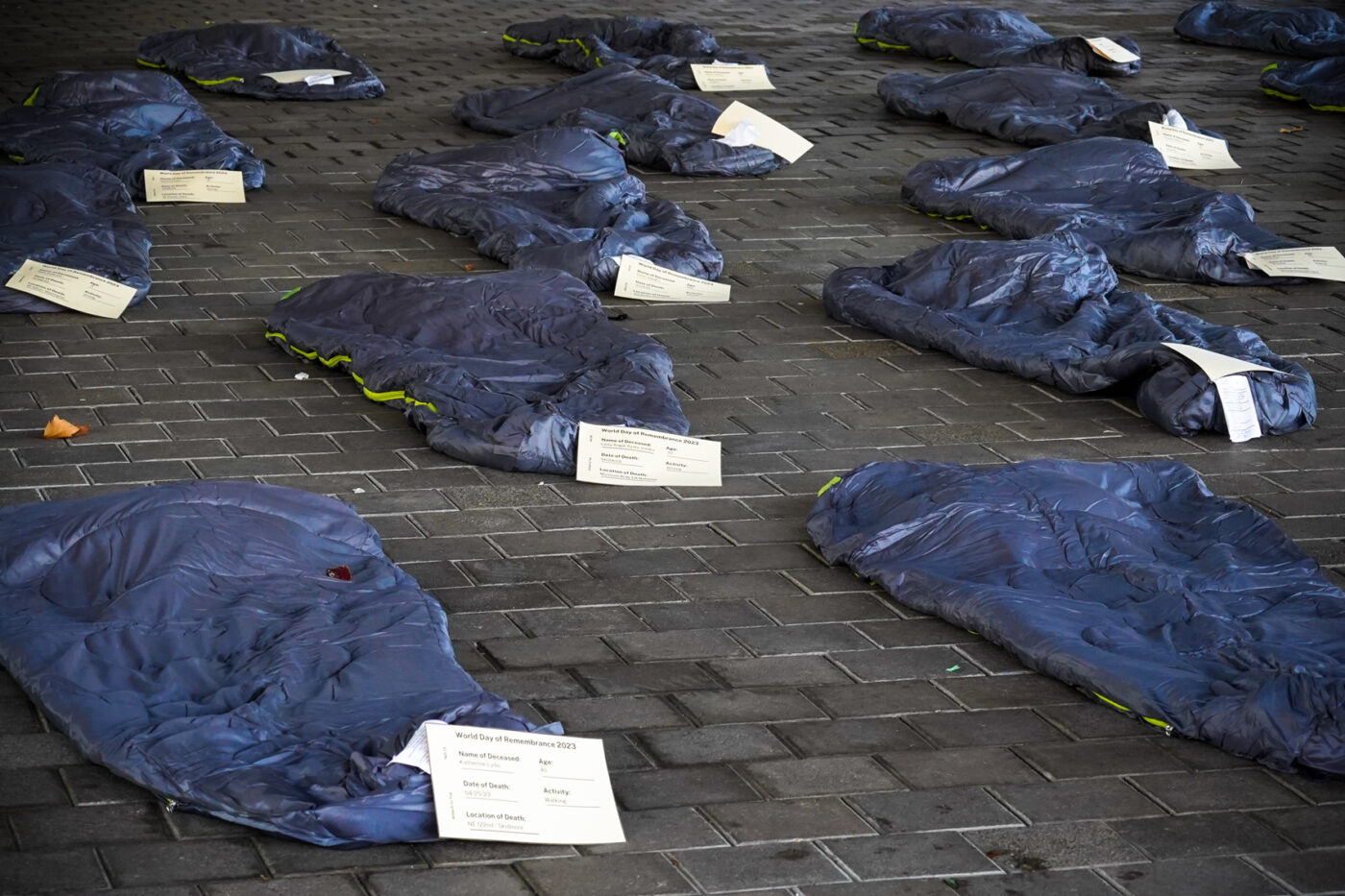
“I wish more people could see this and recognize that these are real people.”
– Jackie Yerby, bike advocate
About three dozen Portlanders did something together on Sunday that far too often feels like a dangerous activity: they took a walk. And if the reason for it wasn’t clear in the short walk from Lloyd Center Mall to Veterans Memorial Coliseum, when they arrived at the plaza in front of the coliseum, there could be no doubt.
Upon arrival they walked past 60 sleeping bags laid out in rows to represent dead bodies of the people who’ve died using Portland streets so far this year. And in a sad irony, the display was two bags short of the actual total because two more people were killed since the event was organized. And as of this morning, it’s now three bags short as Portland’s annual traffic toll has shot up to 63 lives lost — on pace with 2021 which was the deadliest year we’ve had since 1990.
Dedicated bicycle advocate Jackie Yerby, who serves on boards of The Street Trust and Cycle Oregon (and is a former member of the Community Cycling Center board) told me she had a visceral reaction to walking past the bags. “To see those bags and those names… I got really choked up. It’s a really powerful image, and I wish more people could see this and recognize that these are real people.”
The walk and installation of body bags with the names and dates of victims tagged to them, were part of an event to mark World Day of Remembrance for Road Traffic Victims, an internationally-recognized demonstration that was organized locally by The Street Trust, Families for Safe Streets OR/WA, Oregon Walks, and the City of Portland.
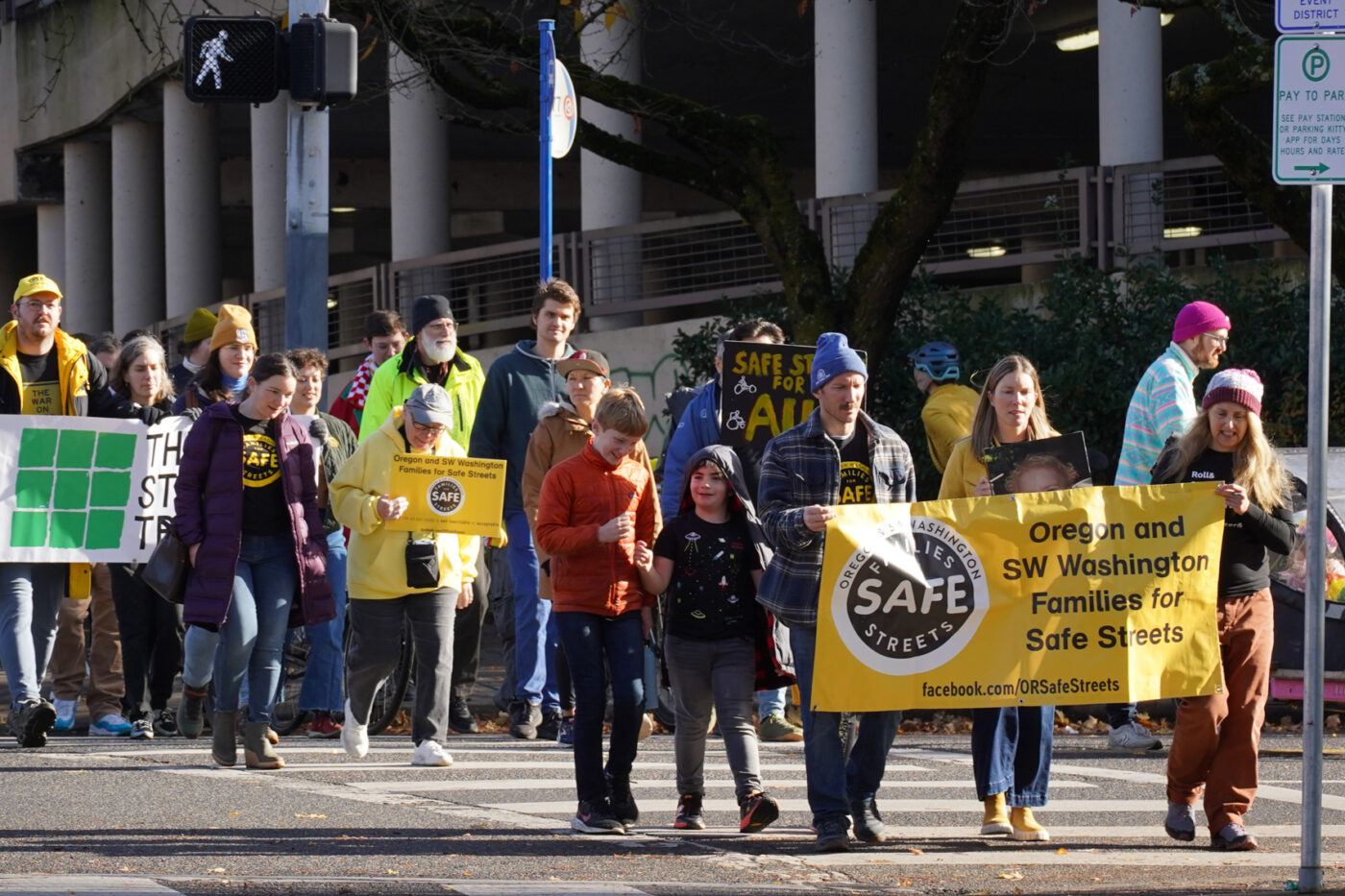
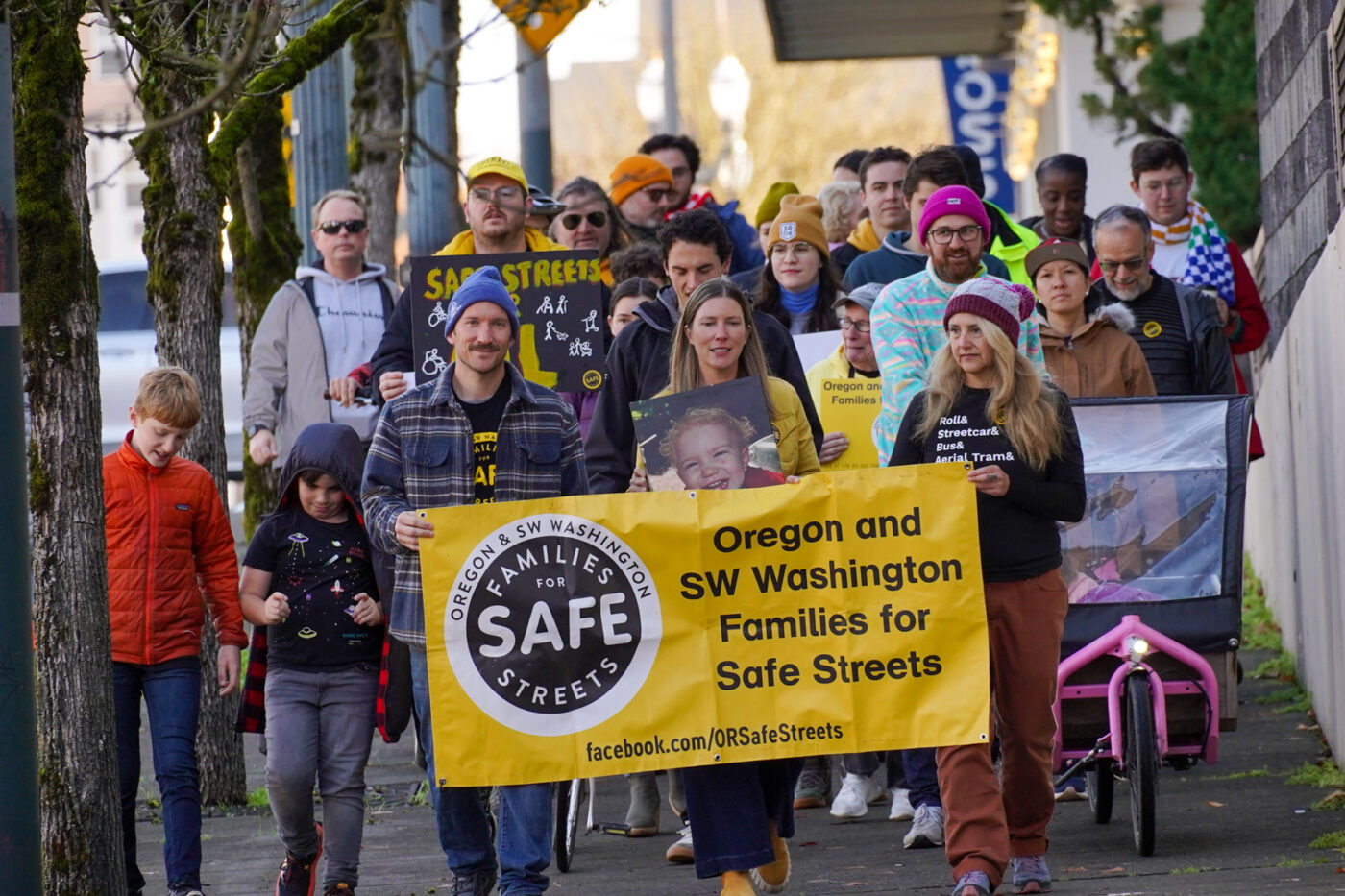
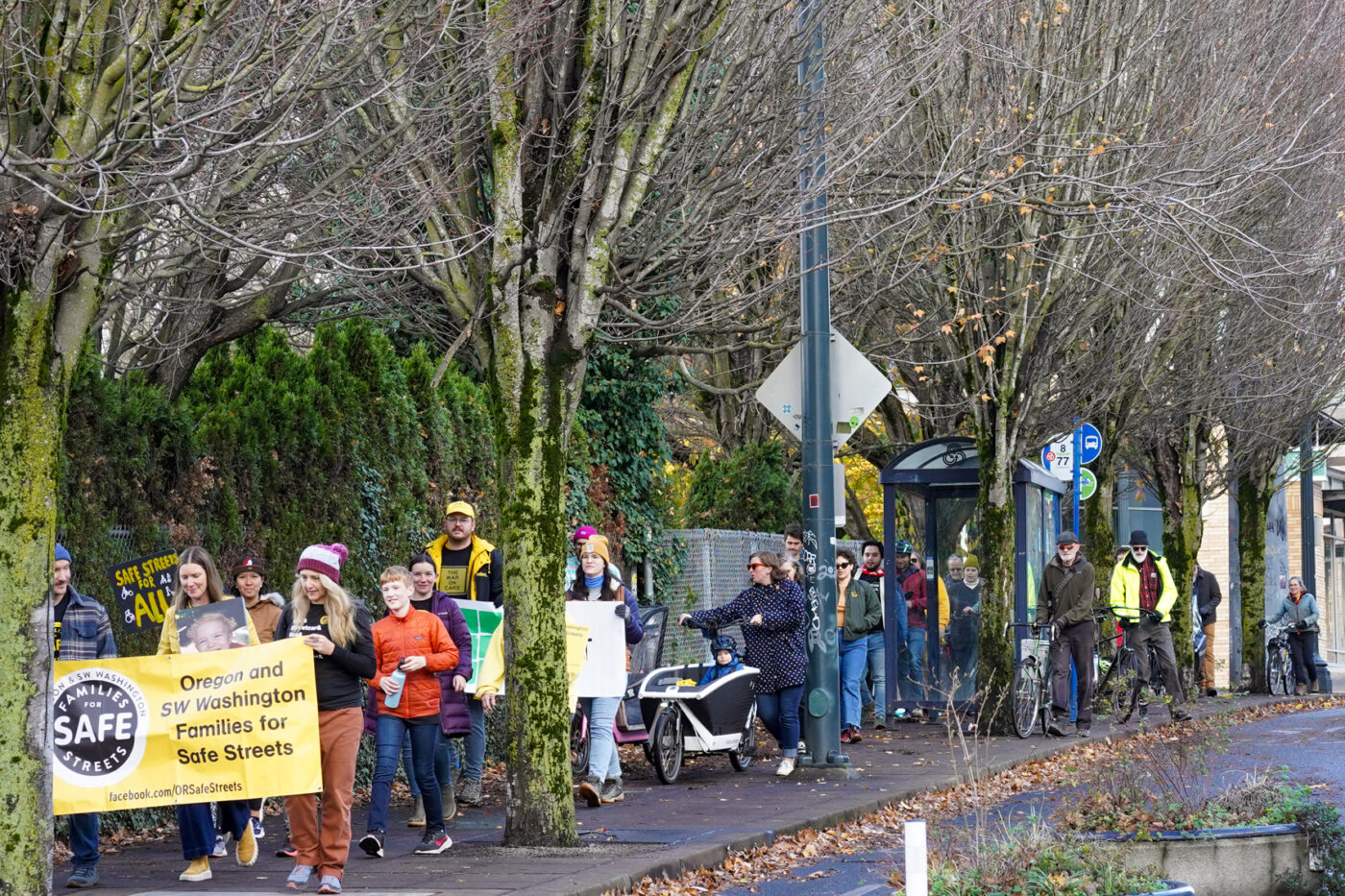
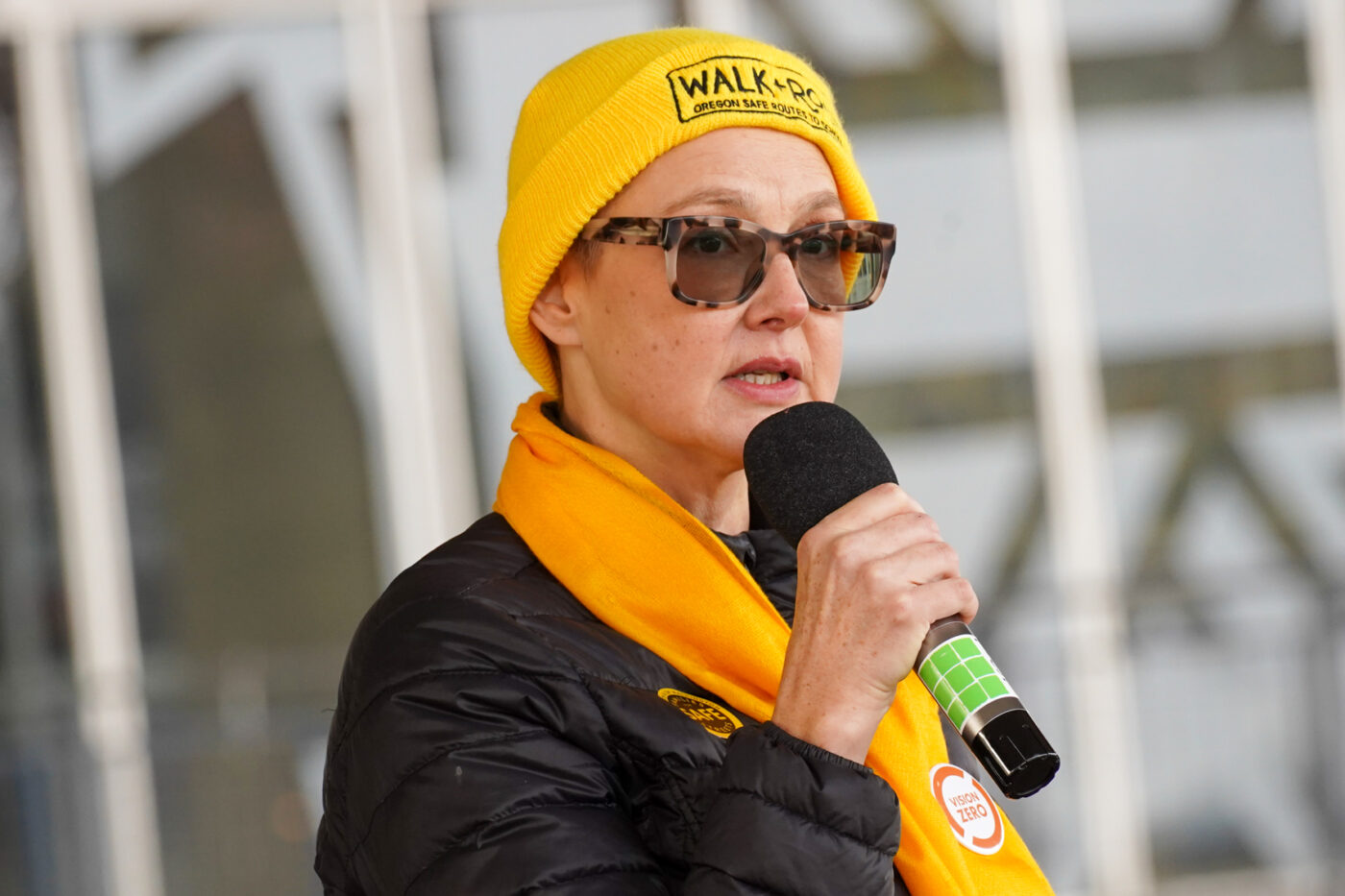

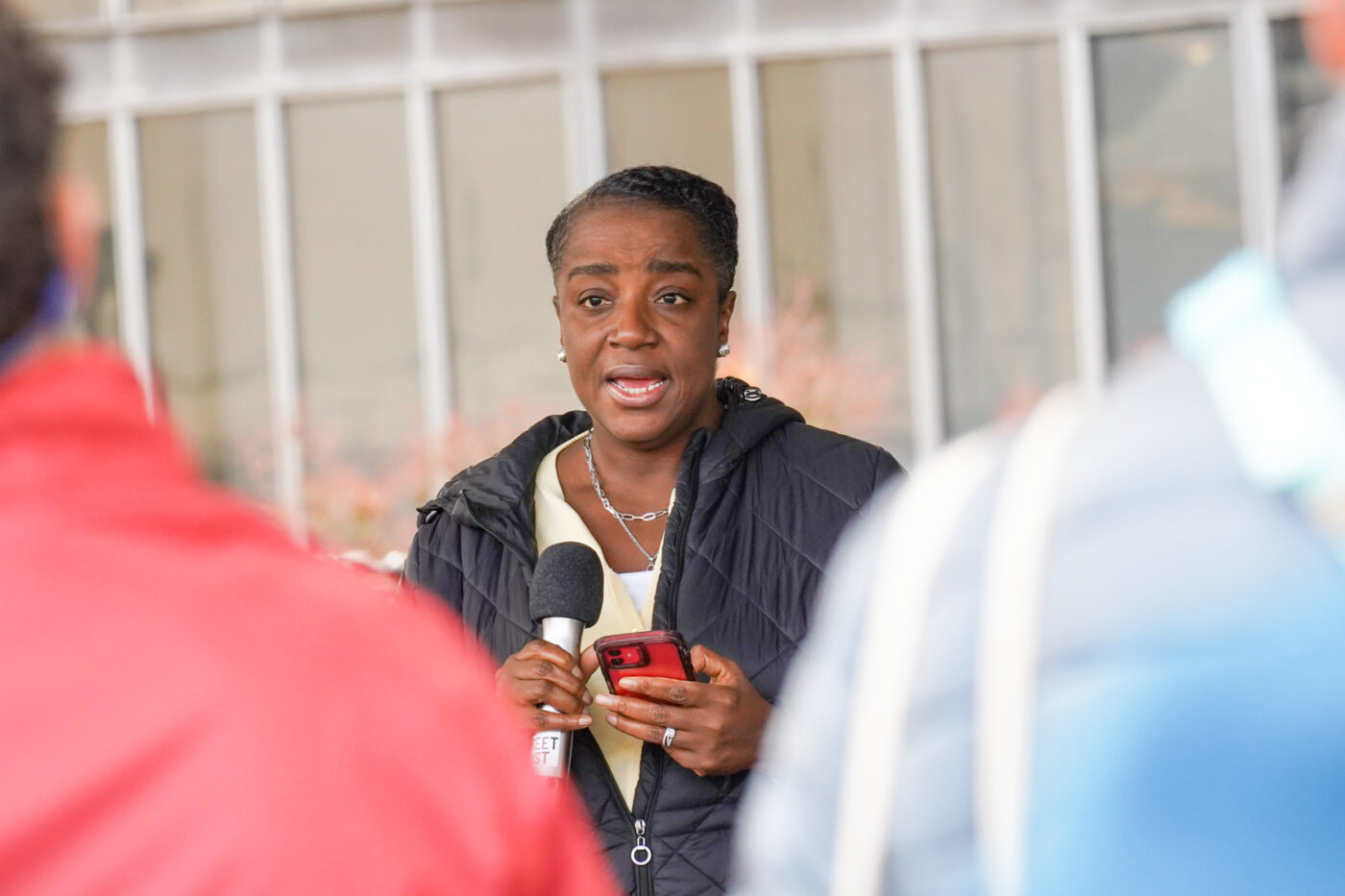
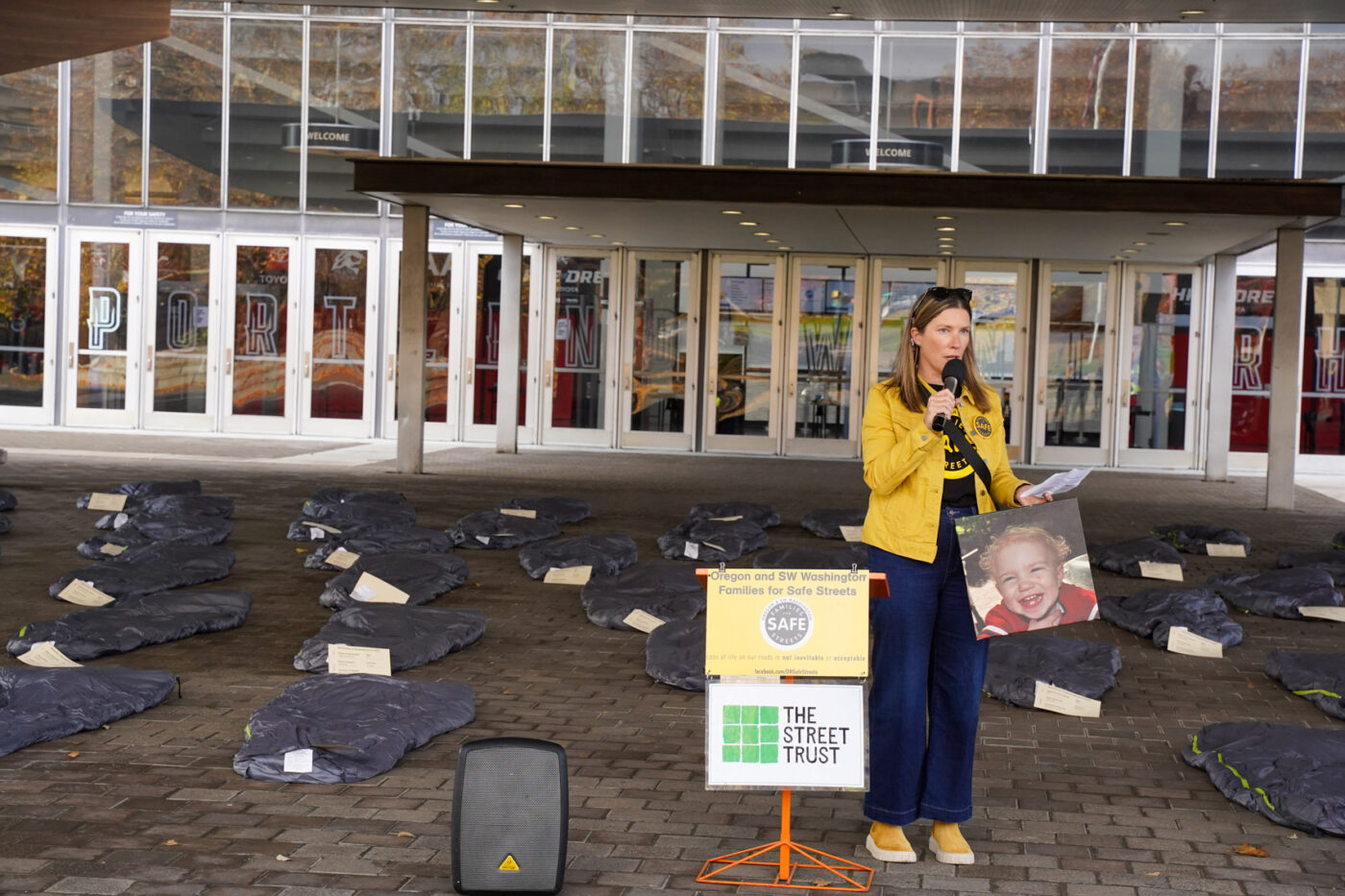
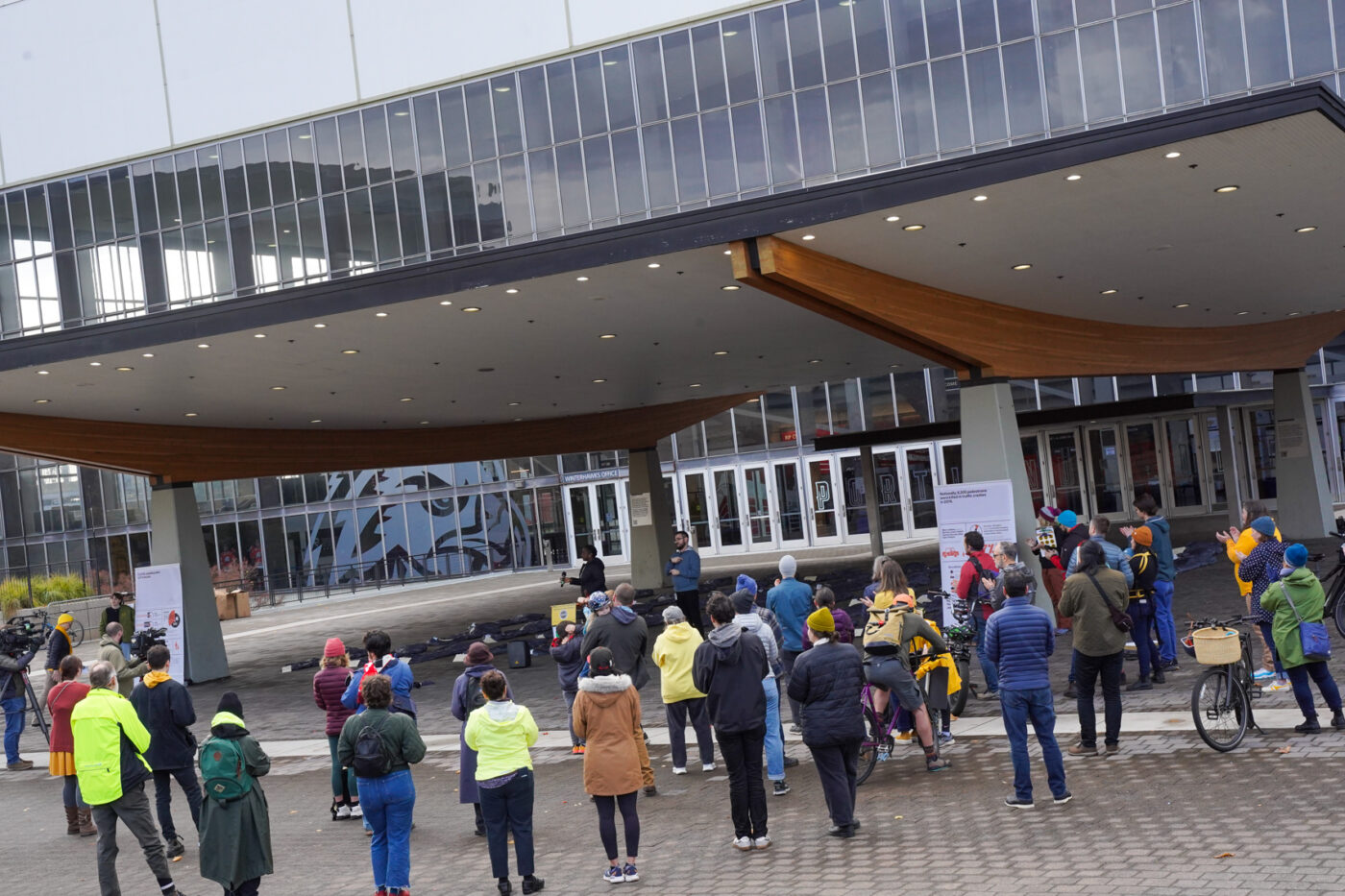

“We generally try to find joy in our work and come together around the things we can get excited to transform like street plazas and bike buses and group rides and improvements to our system,” said The Street Trust Executive Director Sarah Iannarone as she stood in front of the bags. “But today is not one of those joyful days. It’s a somber day. And we need to pay close attention to the fact that the statistics that we’re talking about, each of them represent a precious life in our community — someone who was beloved mother, sister, father, brother, nephew, worker, leader, killed on our streets.”
Watching Iannarone from the crowd was Michelle DuBarry with her husband and her two children. 13 years ago DuBarry’s husband was pushing a stroller in the crosswalk of North Interstate Avenue at Lombard when he and their one-year-old son Seamus were hit by a careless driver. The father was injured. Seamus died at the hospital shortly after. DuBarry is now a volunteer activist with Families for Safe Streets.
“These deaths and injuries to people we love are violent, they are sudden, they are impossibly painful for everyone involved,” DuBarry said while holding a photo of Seamus. “And they are entirely preventable.” “Every day I think about the simple crosswalk improvements that could have prevented the crash that killed my son, and our transportation agency’s repeated insistence that there is no money to save lives.”
Wendy Serrano, who works as equity and inclusion manager for the City of Portland Bureau of Transportation, has also lost family members to violent traffic crashes. In the past 20 years since she and her family arrived in Portland from Guadalajara, Mexico, her grandmother (whom she described as “more like a mother”) and her grandfather were killed by drivers.
With her baby in a sling strapped to her chest, Serrano recounted those preventable deaths and shared, “We need to be clear about whose safety we should be prioritizing, whose comfort our governments and entities should be prioritizing, in our streets. And we need to be clear about who are the most vulnerable and who are the people who will continue to die in our streets.”
A growing segment of Portland’s traffic victims are the extremely vulnerable people who live adjacent to streets in tents and other makeshift shelters. The sleeping bags used in Sunday’s memorial weren’t just to represent dead bodies, they were an intentional statement about the toll traffic violence takes on people who live outside. “We know people experiencing homelessness are overrepresented in Portland’s pedestrian fatalities,” The Street Trust’s Iannarone said. “It was as high as 70% two years ago. This year, we’ll probably be on order of about 50%, if not a majority of pedestrian fatalities on Portland streets.” (The sleeping bags were packed up and donated to homeless services organizations.)
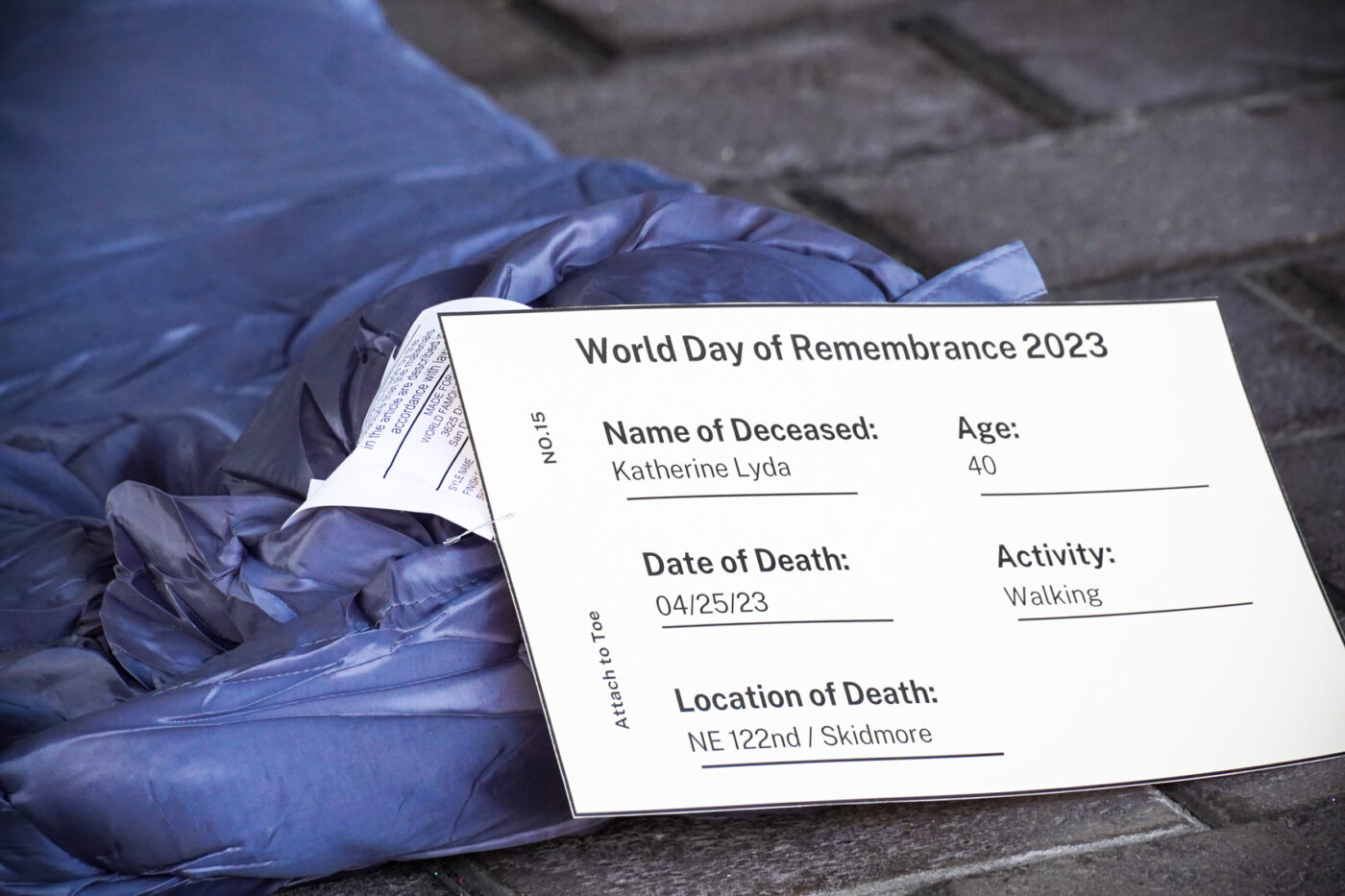
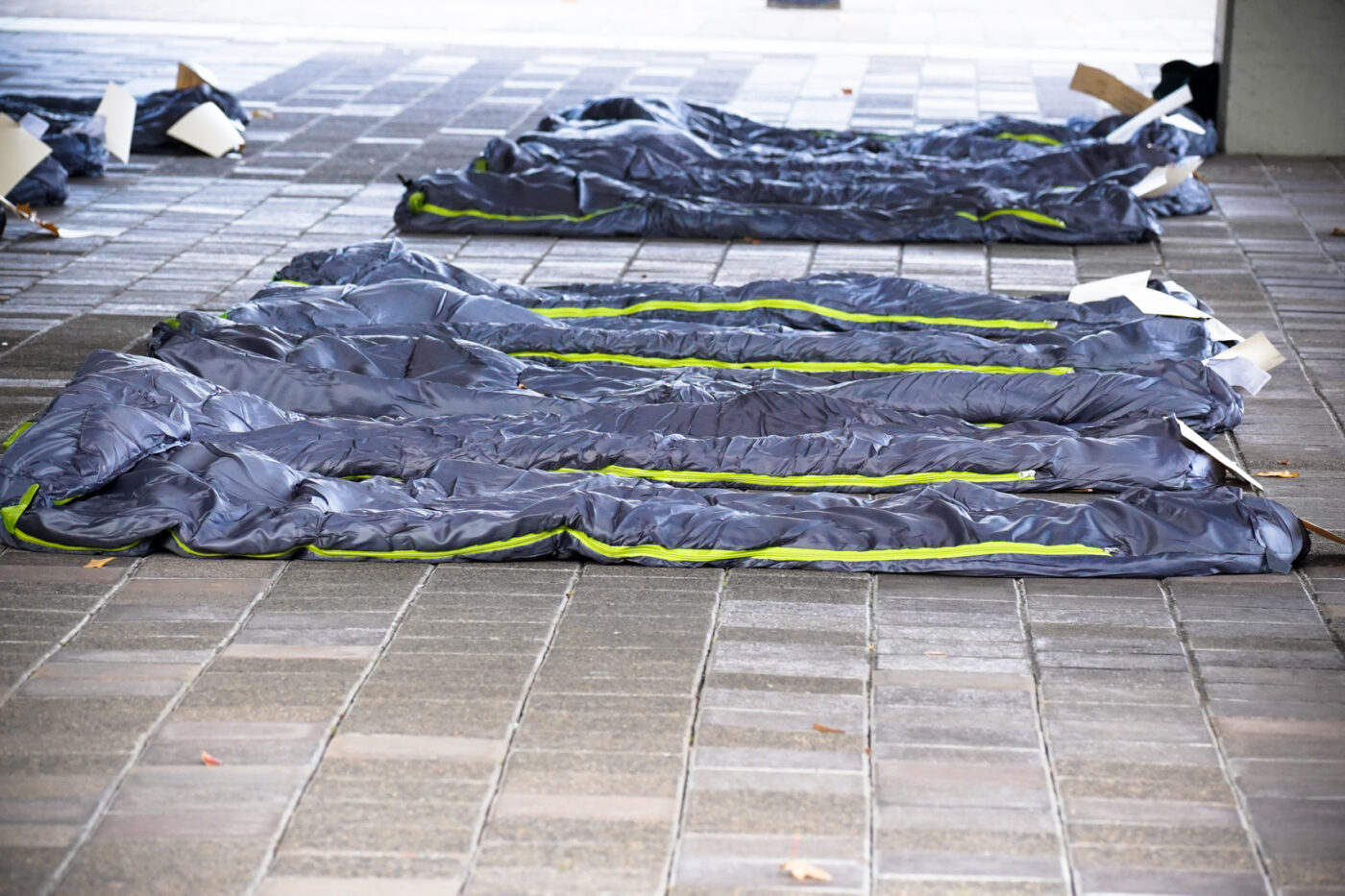
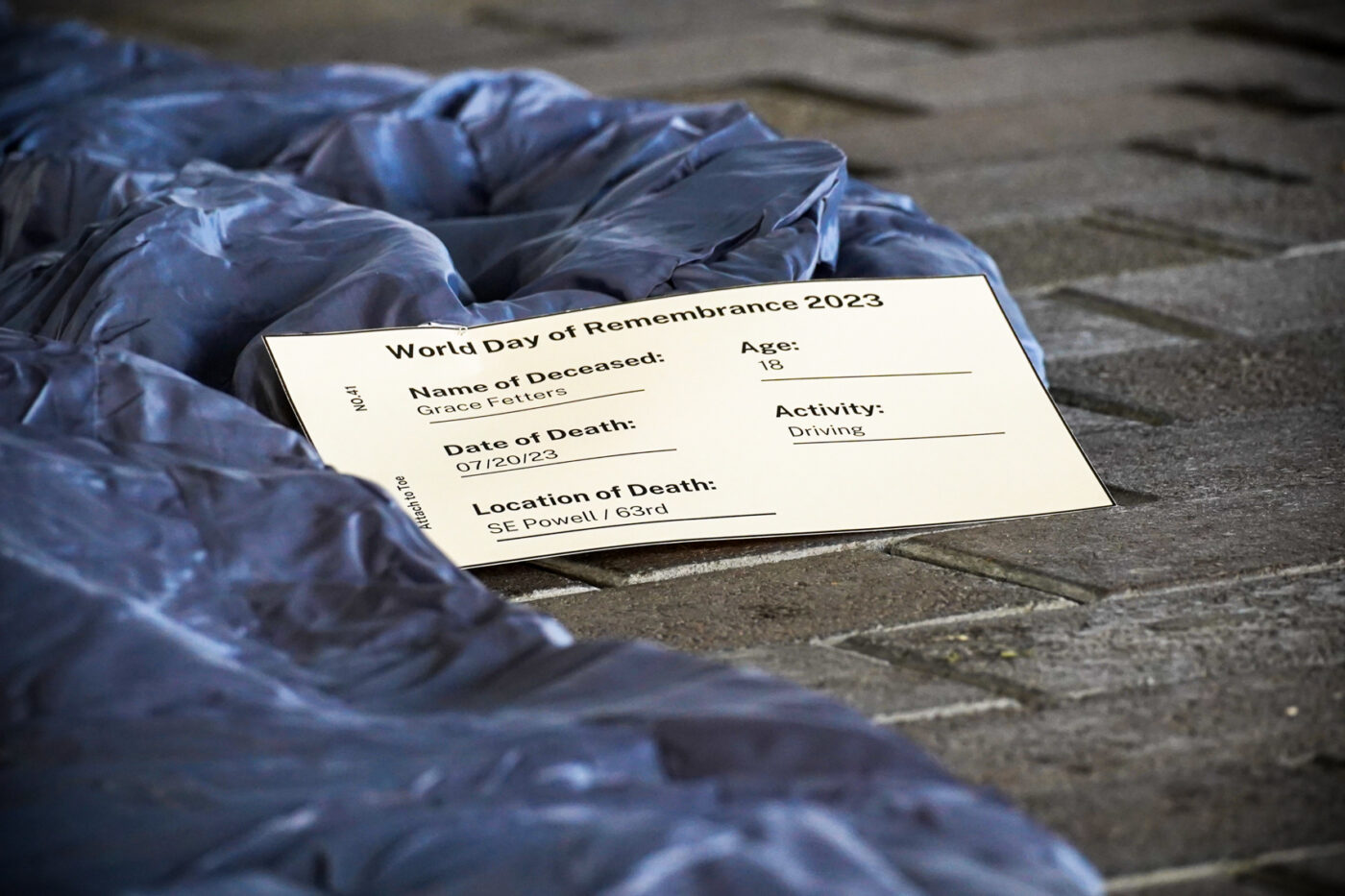
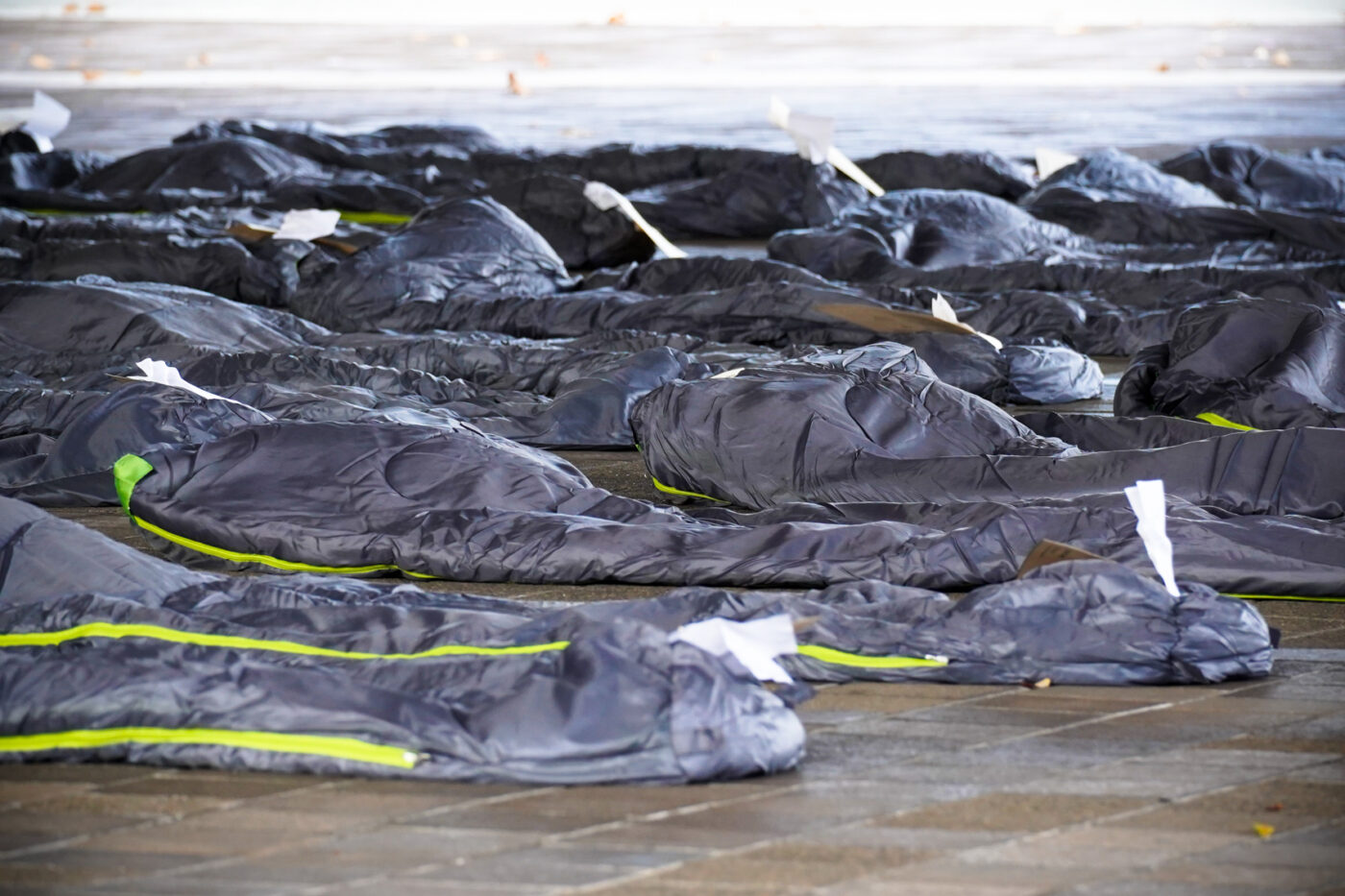
As we walked past several people living on the sidewalk on our way to the memorial, I asked Portlander Lena Wiley why she showed up to the event. “I am a pedestrian. And in my daily life, I encounter all sorts of unsafe situations,” Wiley shared. “And it’s just really important to me to build safer streets, both for myself but also for the community.” Asked what she wanted see more of from the city, in terms of safety changes, Wiley said she’d like to see turning movement more aggressively addressed because so many people make unsafe right turns on red signals.
For Claire Vlach, who showed up with her husband and two young children, the event made her appreciate just being able to walk together. “The main thing I was thinking about on our way over here was how grateful I am that my family has not been touched by traffic violence. Because we walk and bike most places that we go, and I always feel vulnerable. And I’m grateful that my children are around and I wish that everybody’s children were still around.”
Watch a video of the event posted to our social media channels today (if it doesn’t show up below, watch it on Instagram here):



